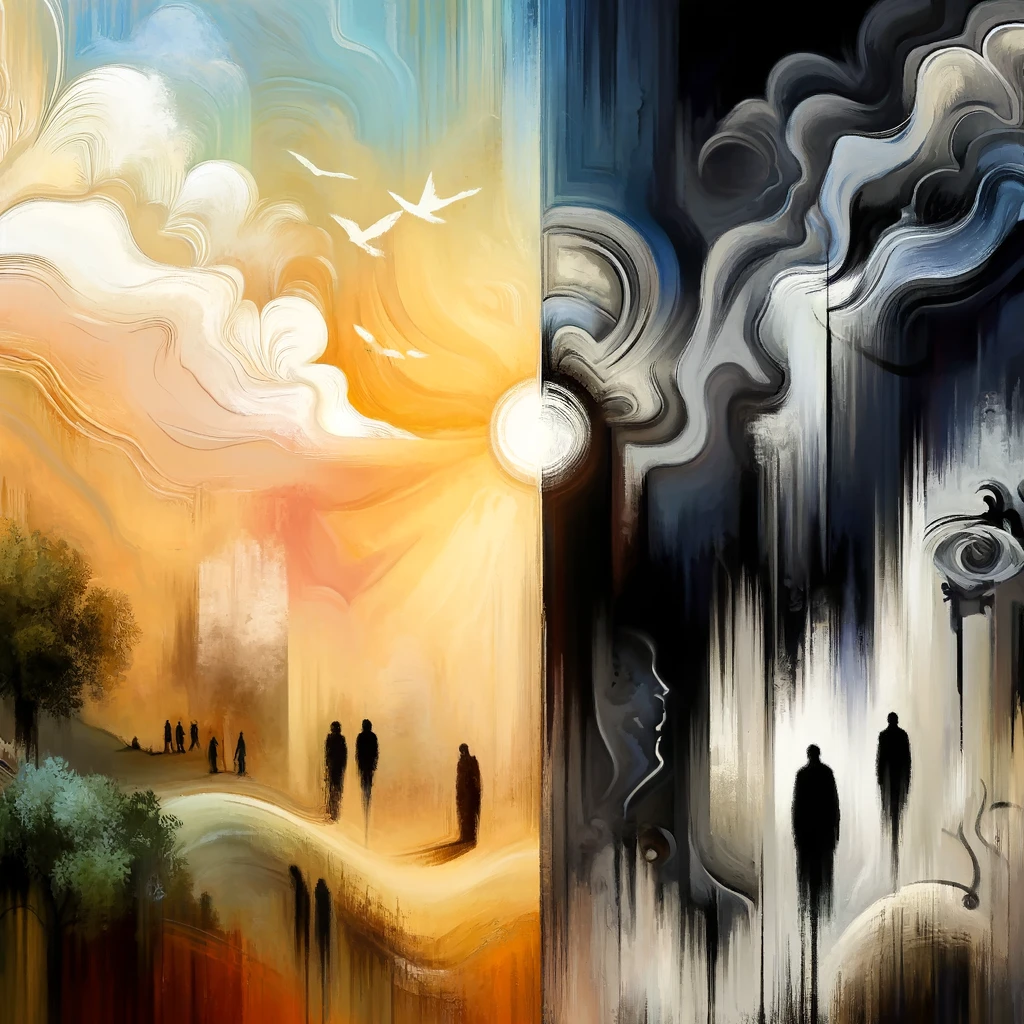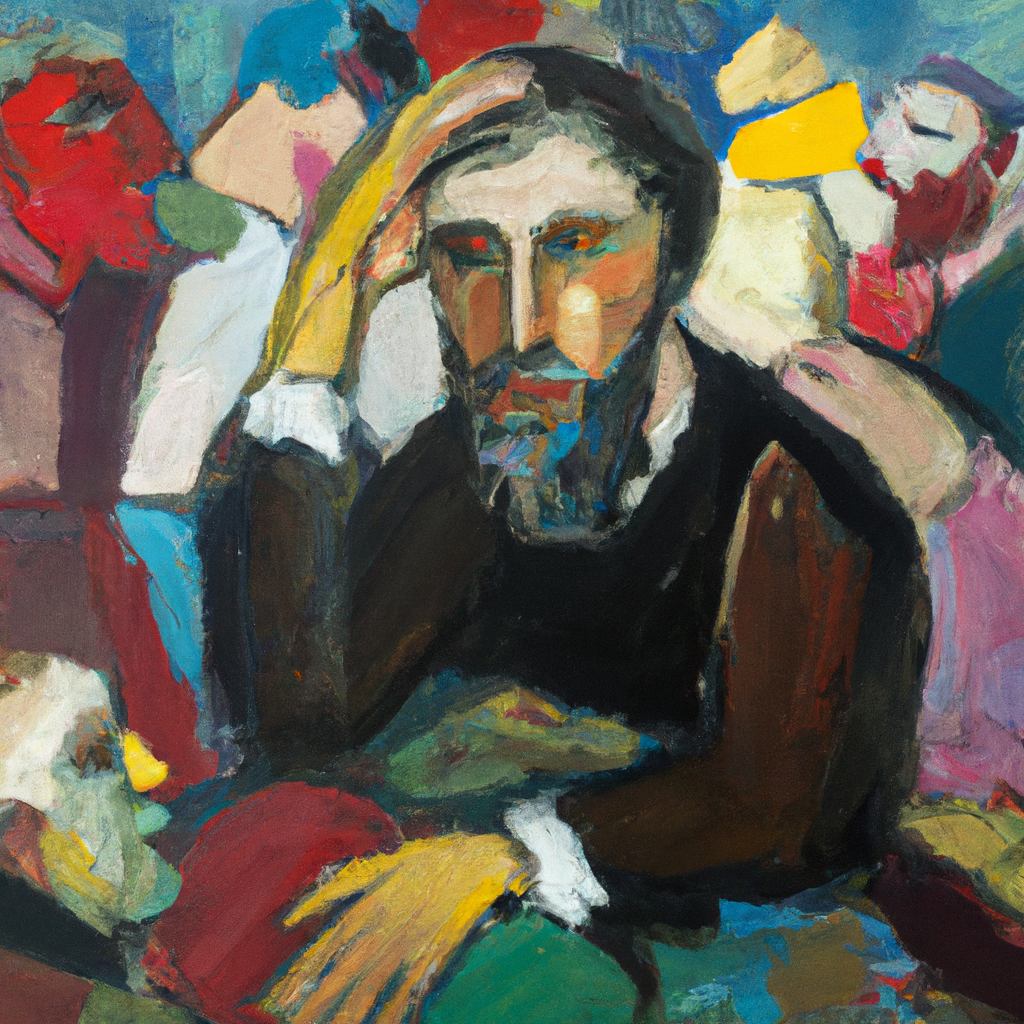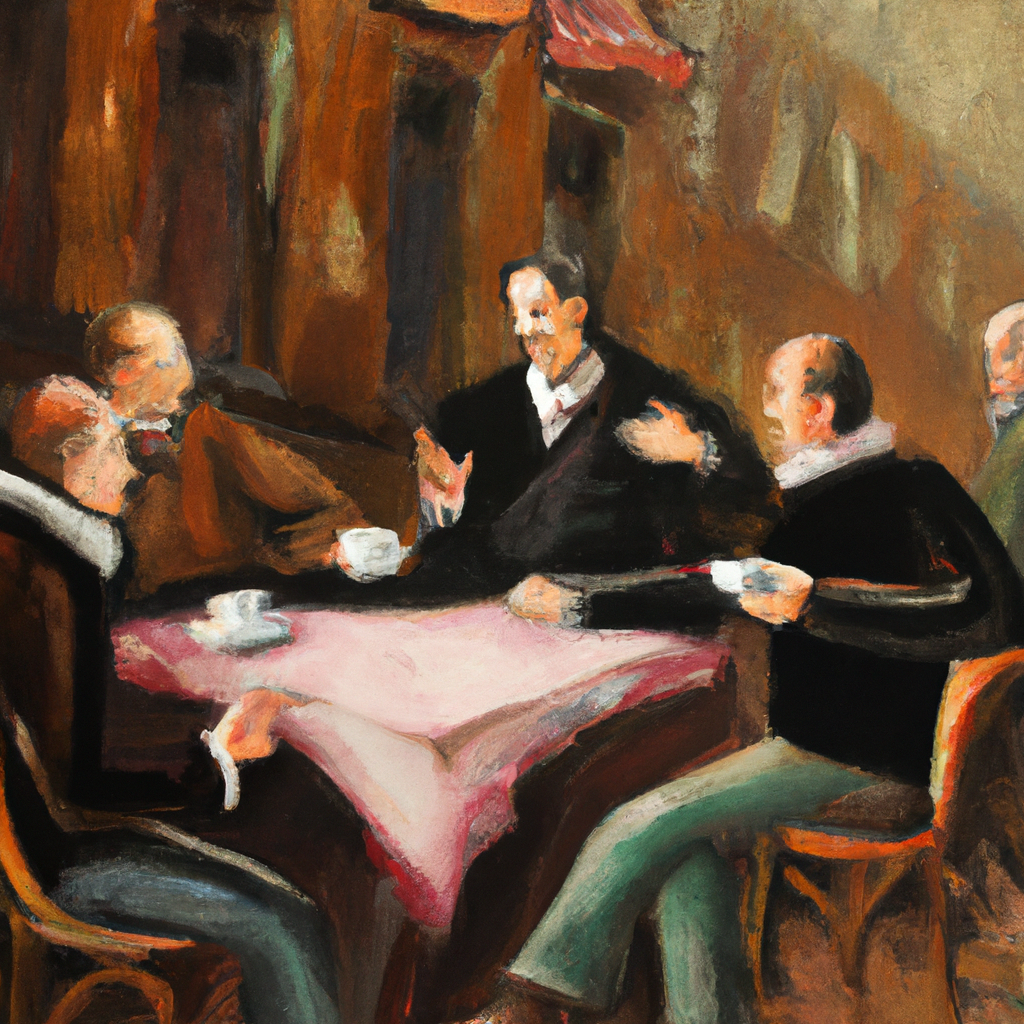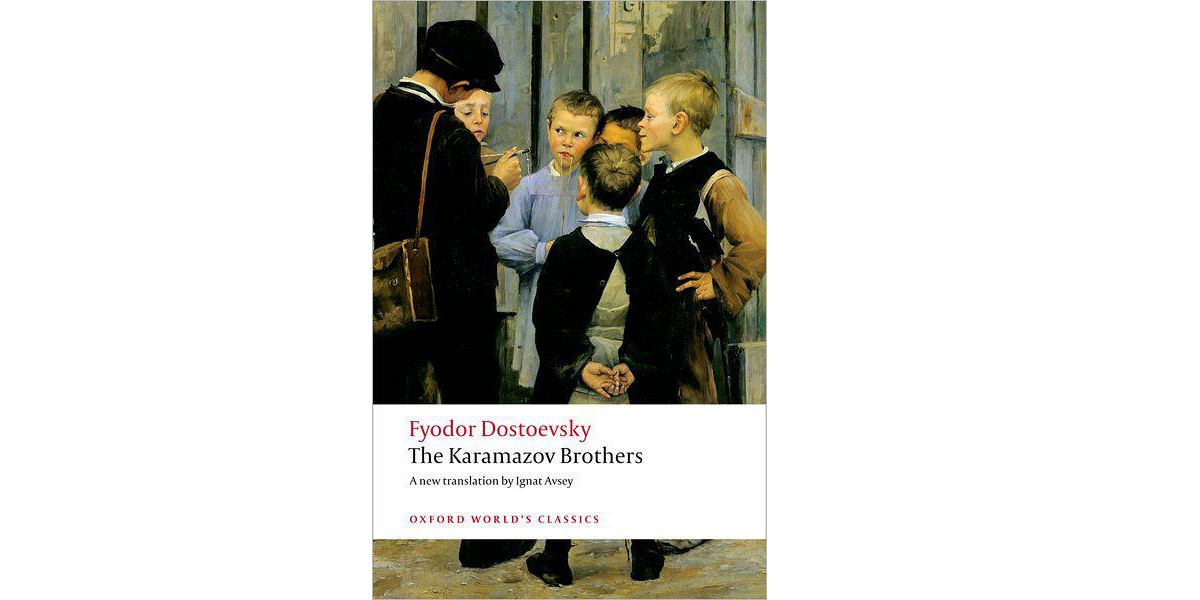The Brothers Karamazov by Fyodor Dostoevsky is a true masterpiece, and I re-read it regularly. I also read it in English since many of the major Dostoyevsky commentators and scholars write in English. This book has many English translations, and I have gone back and forth between them before ending in the Oxford World’s Classics version, translated by Ignat Avsey as “The Karamazov Brothers.” There is, of course, no “best” translation of any book, but here I will show you why this translation works best for me.
I can start by comparing one of my favorite passages in the book, where they meet in the monastery, and Father Zosima sees right through Fyodor’s buffoonery. The original translation into English seems to be Constance Garnett’s:
Above all, don’t lie to yourself. The man who lies to himself and listens to his own lie comes to such a pass that he cannot distinguish the truth within him, or around him, and so loses all respect for himself and for others. And having no respect he ceases to love, and in order to occupy and distract himself without love he gives way to passions and coarse pleasures, and sinks to bestiality in his vices, all from continual lying to other men and to himself.
For me, who has English as a second language, this is a good translation although it feels a bit formal.
David McDuff has translated the same passage into the following:
The main thing is that you stop telling lies to yourself. The one who lies to himself and believes his own lies comes to a point where he can distinguish no truth either within himself or around him, and thus enters into a state of disrespect towards himself and others. Respecting no one, he loves no one, and to amuse and divert himself in the absence of love he gives himself up to his passions and to vulgar delights and becomes a complete animal in his vices, and all of it from perpetual lying to other people and himself.
For some reason, this translation feels a bit awkward to me, and McDuff has a choice of words and a style that hinder more than help me. I know McDuff appeals to many who have English as their first language, but for me, it doesn’t take me all the way to a good understanding.
A translation that has gained a lot of attention, positive as well as negative, is the one from Richard Pevear and Larissa Volokhonsky. Their version of the same text is:
A man who lies to himself and listens to his own lie comes to a point where he does not discern any truth either in himself or anywhere around him, and thus falls into disrespect towards himself and others. Not respecting anyone, he ceases to love, and having no love, he gives himself up to passions and coarse pleasures, in order to occupy and amuse himself, and in his vices reaches complete bestiality, and it all comes from lying continually to others and to himself.
Pevear and Volokhonsky are famous for reinventing Dostoyevsky’s translated language, and we can sense it in just this small text. Some people find this reinvigorating, while others shudder at the thought of translators trying to improve the language of Dostoyevsky, Tolstoy, and more. Initially, I found the Pevear and Volokhonsky translation to be the best, but all the sharp remarks about this translation destroying Dostoyevsky’s text made me look around a bit more.
Finally, I found the translation by Ignat Avsey which I have heard many positive remarks about. Yes, he omits using the Latin Pro/Contra and uses Pros/Cons for Book 5, he calls Book 10 “Schoolboys” instead of just “Boys”, and he omits ‘Brother’ in Book 11 so it is called “Ivan Fyodorovich” instead of “Brother Ivan Fyodorovich”. But no translation is perfect, and he uses a language that appeals to me and many others:
He who lies to himself and listens to his own lies reaches a state in which he no longer recognizes truth either in himself or in others, and so he ceases to respect both himself and others. Having ceased to respect everyone, he stops loving, and then, in the absence of love, in order to occupy and divert himself, he abandons himself to passions and the gratification of coarse pleasures until his vices bring him down to the level of bestiality, and all on account of his being constantly false both to himself and to others.
There is something about the rhythm and choice of words that appeal to me, and that helps me understand the characters.
A final version of the above writing is from Andrew R. MacAndrew and the Bantam Classic version, which also is pleasing to me:
A man who lies to himself, and believes his own lies, becomes unable to recognize truth, either in himself or in anyone else, and he ends up losing respect for himself as well as for others. When he has no respect for anyone, he can no longer love and, in order to divert himself, having no love in him, he yields to his impulses, indulges in the lowest forms of pleasure, and behaves in the end like an animal, in satisfying his vices. And it all comes from lying—lying to others and to yourself.
Another example is the last sentence of the first paragraph in the book, describing Fyodor’s muddleheadedness.
Garnett:
I repeat, it was not stupidity —the majority of these fantastical fellows are shrewd and intelligent enough—but just senselessness, and a peculiar national form of it.
McDuff:
I repeat: here there was no question of stupidity; the bulk of these madcaps are really quite sharp and clever – but plain muddle-headedness, and, moreover, of a peculiar, national variety.
Pevear/Volokhonsky:
Again I say it was not stupidity—most of these madcaps are rather clever and shrewd—but precisely muddleheadedness, even a special, national form of it.
Avsey:
Let me repeat yet again: this was not a case of stupidity—most of these crackpots are shrewd and cunning enough—but of muddle-headedness, and of a special, typically Russian kind.
MacAndrew:
Let me repeat: it was not stupidity, for most such eccentrics are really quite intelligent and cunning, and their lack of common sense is of a special kind, a national variety.
Put simply, Avsey’s and MacAndrew’s languages make the text more direct and lands in my mind in another way that the other translator’s texts do.
As a final comparison, we can hear the different versions of how Mrs. Khoklakova and her daughter Lise are introduced:
Garnett:
Mrs Khokhlakova, a wealthy lady, always dressed with taste, was still quite young and very comely in appearance, somewhat pale-skinned, with very lively, almost completely black eyes. She could not have been more than thirty-three years old and had been a widow for about five years. Her fourteen-year-old daughter suffered from paralysis of the legs. The poor girl had been unable to walk for about six months, and had to be wheeled around in a long Bath-chair on rubber-rimmed wheels. She had a charming little face, somewhat thin from sickness, but cheerful.
McDuff:
Mrs Khokhlakova, the mother, a rich lady who always dressed with taste, was a person still quite young and very pleasant to the gaze, somewhat pale, with eyes that were very lively and almost completely black. She was no more than thirty-three, and she had already been a widow for some five years. Her fourteen-year-old daughter was afflicted by a palsy of the legs. The poor young girl had been unable to walk for the past half-year, and she was wheeled about in a long bath chair. She had a charming little face, somewhat thin from her illness, but full of gaiety.
Pevear/Volokhonsky:
Madame Khokhlakov, the mother, a wealthy woman, always tastefully dressed, was still fairly young and quite attractive, slightly pale, with very lively and almost completely black eyes. She was not more than thirty-three years old and had been a widow for about five years. Her fourteen-year-old daughter suffered from paralysis of the legs. The poor girl had been unable to walk for about half a year already, and was wheeled around in a long, comfortable chair. Hers was a lovely little face, a bit thin from illness, but cheerful.
Avsey:
Mrs Khokhlakova, a wealthy lady, always dressed with taste, was still quite young and very comely in appearance, somewhat pale-skinned, with very lively, almost completely black eyes. She could not have been more than thirty-three years old and had been a widow for about five years. Her fourteen-year-old daughter suffered from paralysis of the legs. The poor girl had been unable to walk for about six months, and had to be wheeled around in a long Bath-chair on rubber-rimmed wheels. She had a charming little face, somewhat thin from sickness, but cheerful.
MacAndrew:
Mrs. Khokhlakov, a wealthy woman, always tastefully dressed, was still young and very pretty; she was rather pale, with very lively, almost black eyes. She was no more than thirty-three and had been a widow for five years. Her fourteen-year-old daughter, whose legs were paralyzed, had been unable to walk for six months and had to be pushed around in a wheelchair. She had a charming face, a little emaciated by sickness, but cheerful.
In this version, MacAndrew leads the way in portraying the mother and her daughter in front of me. The language is not a hindrance but his version is true to the original. For example, he describes the mother as “very pretty” instead of comely in appearance, or pleasant to the gaze.
Finally, an interesting remark from Avsey, is that the book should be called “The Karamazov Brothers” since that is the order of words English speaking people use:
One need go no further than the title, the standard English rendering of which is The Brothers Karamazov. This follows the original word order, the only one possible in Russian in this context. Had past translators been expressing themselves freely in natural English, without being hamstrung by that original Russian word order, they would no more have dreamt of saying The Brothers Karamazov than they would The Brothers Warner or The Brothers Marx.





